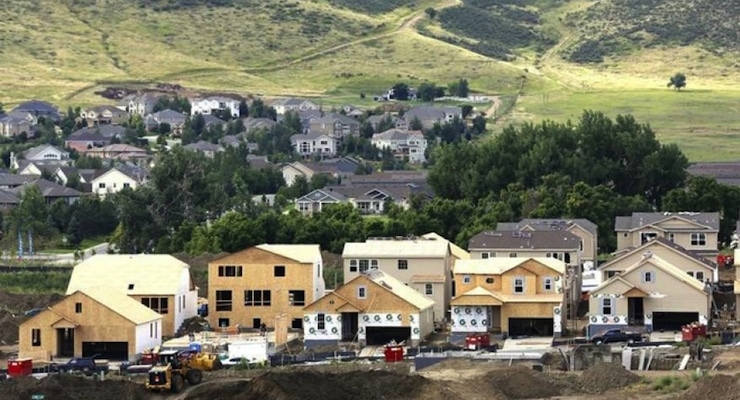

(Photo: Reuters)
The Commerce Department said on Friday that housing starts surged to a near 8-year high in June to a seasonally adjusted annual pace of 1.17 million units. Groundbreaking increased 9.8 percent to a seasonally adjusted annual pace of 1.17 million units, according to the Commerce Department.
Further, May’s starts were revised up to a 1.07 million-unit rate from the initially reported 1.04 million-unit pace. Economists polled by Reuters had forecast housing starts increasing to a 1.11 million-unit pace last month.
Permits for future home construction increased 7.4 percent to a 1.34 million-unit rate, which the highest level since July 2007, and have been above a 1 million-unit pace since July.
The NAHB/Wells Fargo Housing Market index released on Thursday found homebuilders’ confidence remained sideways, but held at a more than 9-1/2-year high in July. Some economists argue that the housing market will offset the drag on the economy from a struggling manufacturing sector and high trade deficits.
Groundbreaking for single-family homes, which account for the largest share of the market, fell 0.9 percent to a 685,000 unit pace, which was fueled by a severe drop in the Northeast. However, single-family starts in the South, where most of the home building takes place, increased to their highest level since March 2008.
Starts for the volatile multifamily segment skyrocketed 29.4 percent to a 489,000 unit rate, while groundbreaking for buildings with five units or more increased to the highest level since November 1987. Single-family building permits rose 0.9 percent. Multi-family building permits soared 15.3 percent. Permits for buildings with five units or more increased to their highest level since January 1990.
The most damning journalistic sin committed by the media during the era of Russia collusion…
The first ecological study finds mask mandates were not effective at slowing the spread of…
On "What Are the Odds?" Monday, Robert Barnes and Rich Baris note how big tech…
On "What Are the Odds?" Monday, Robert Barnes and Rich Baris discuss why America First…
Personal income fell $1,516.6 billion (7.1%) in February, roughly the consensus forecast, while consumer spending…
Research finds those previously infected by or vaccinated against SARS-CoV-2 are not at risk of…
This website uses cookies.